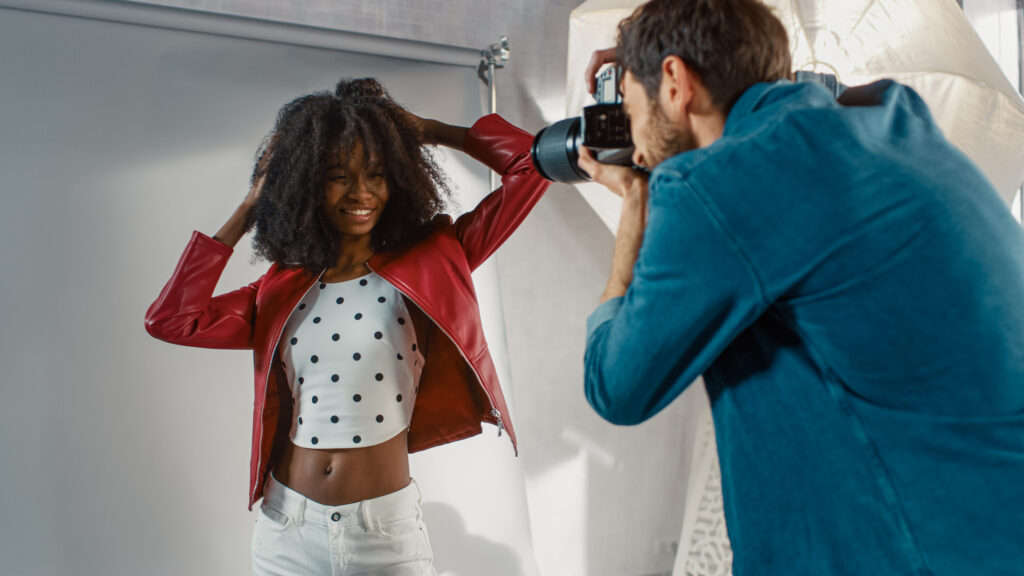Real Sex Sells: How to market to Millennials and Gen Z
In the words of Salt-N-Pepa, let’s talk about sex. It sells, right?
“Hey, see this product? If you buy it, you too will look like this incredibly hot individual and bring all those you fancy to your yard faster than Kelis’s milkshake.”
But then we’re told Gen Z aren’t even having sex. In fact, if they don’t get down to business soon, they’ll kill off the population faster than millennials killed off napkins, traditional marriage and large homes.
So, in a world where sex no longer sells, how can brands get people to buy things they don’t need or want?
Stolen moments: evolving the narrative
The thing is, Gen Z hasn’t really stopped. They’ve come of age during a global pandemic, when actually meeting someone to have that first awkward kiss behind the bike shed was, well, impossible. There were no bike sheds or school discos. There were no notes passed under tables and no proms to prepare for. These iconic moments have been stolen from them. Though on reflection I’m not sure if given our time again Ciara and I fuelled by purloined vodka and teenage awkwardness would have chosen ‘Smells Like Teen Spirit’ as the ideal song for our first tryst. But that is history.
The language of love for each generation has evolved. In the past, draping a scantily clad woman across the bonnet of a car may have been enough to tempt Mr Mad Men to dip into his wallet, but we’ve moved on. No one is denying the natural sex appeal of these classic adverts, but the Nutz/Sports Illustrated covers of yesteryear now look tacky and sexist. There was a brief time in the 90s and 00s when all you had to do to see a spike in sales was drop one of the younger female stars of a TV soap in a shopping trolley or have them saucily eat your latest condiment and suggest it was something much, much ruder. We cringe now to think about it, it just isn’t a tactic or strategy anyone would use today. So why get mad at Gen Z? We’ve (almost) all moved on and grown. Honestly, that’s not a terrible thing.
Sex Ed meets social media
But Gen Z haven’t just lost the bike shed. Many of them have also received poorer quality Sex Education as a direct result of the pandemic. PornHub is not a replacement for teaching kids about the complicated, messy and fantastic emotions that come with relationships, regardless of how casual they may be. On top of this, an actual drop in LGBTQ+ representation in the media, and the alarming lack of general education on healthy body image in schools and at home mean the challenges facing Gen Z are new and varied.
With a drop in guidance from us ‘adults’ who should be leading the way, Gen Z have taken up the challenge and are educating themselves about sex on their own channels and platforms and using their own language. Sex Ed Tik Tok is very much a thing, and not something to be afraid of. Gen Z are combatting misinformation, swerving censorship and algorithms with puns and wordplay. They’ve created communities that are more informed and more accepting than anything we so-called grown-ups have ever known.
Is disinformation still a threat? Of course. Can children still access information in ways that bemuse parents? Naturally, but is that really new? Does sex still sell? Yes, but not how you think.
Honesty over glamour
Ongoing and continuous authenticity, natural diversity, conversations rather than lectures – these are all ways in which sex can still sell. Think about empowering a broad spectrum of individuals to be their best, and through this, not your product, they may get the girl, or boy, or cute enby they have their eye on.
Drop your notions of 2.4 kids and white picket fences. Actually. Maybe don’t, just know that those behind the white picket fence might be a polycule of unique individuals, a couple who only met online for the first few years of their romance, or they might just be yet another nuclear family. And all of these are valid. Brands are no longer the gatekeepers of sexy. It’s time to listen.
Undressing sex in 2022
At Sticky we’re happy to champion brands doing the work even if they aren’t on our client list (yet). So, credit where it is due to Canesten and The Truth Undressed. This campaign talks honestly and explicitly about the health of vulvas. Women make up more than half the population of England and Wales (51% – ONS Census 2021), but most of the population don’t know the actual anatomy of a vulva. Canesten have gone full frontal in the best way possible, by being open, honest and factual.
Beyond this, Selfridge’s, one of the great bastions of the UK high street, hosted Sex + Sleep back in July an experimental pop-up delivering everything from guided sleep sessions by the house of Wellbeing and Anatomē, to a Feelgood Bar offering treatments and help for everything from gut health and hangovers to pleasure-based products.
Salt-N-Pepa were right, let’s talk about sex. Let’s talk about all the good things and the bad things that may be. Be honest, open and invite a generation that is far ahead of many of us in some ways but still needs support and guidance in others to the table so we can keep the conversation moving forward.
And isn’t that better than saying, ‘Here, drive this car, it get you good woman.’



